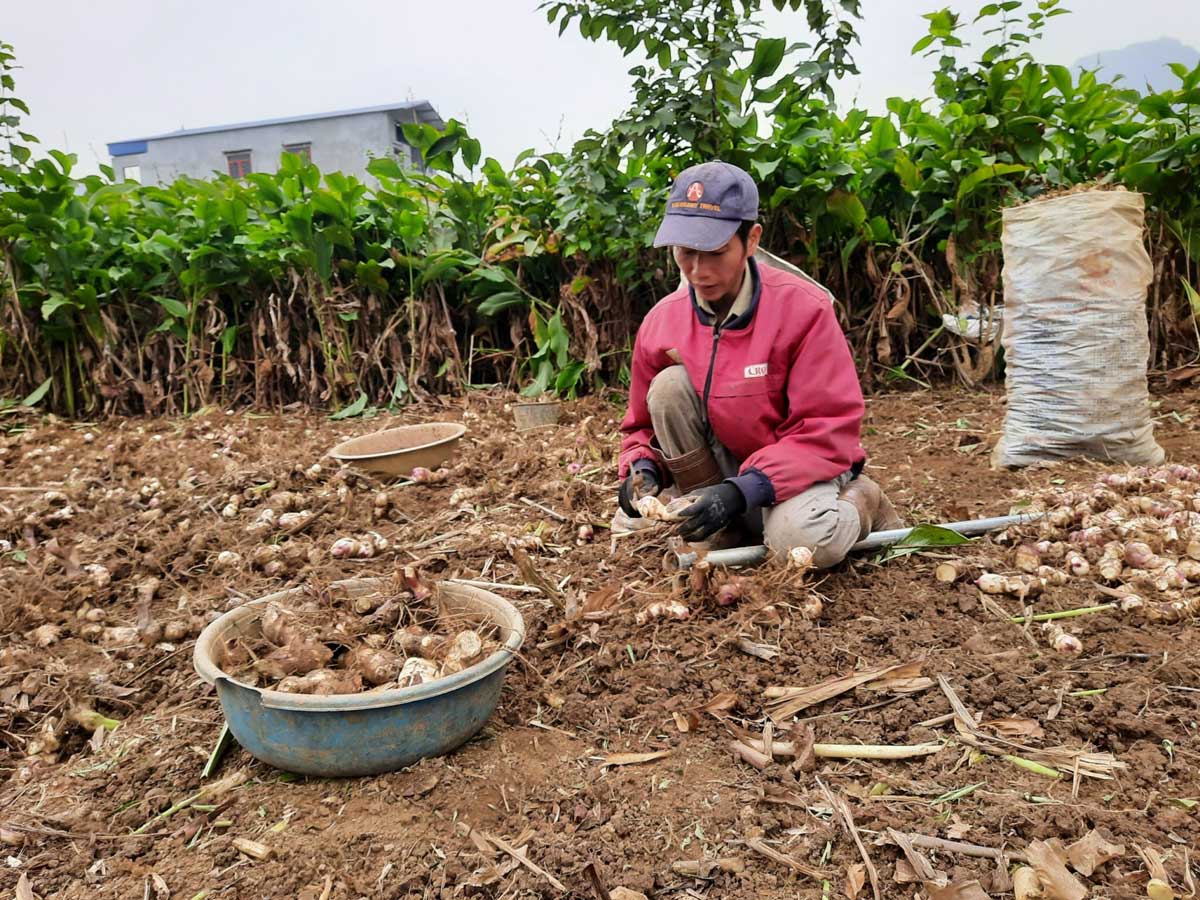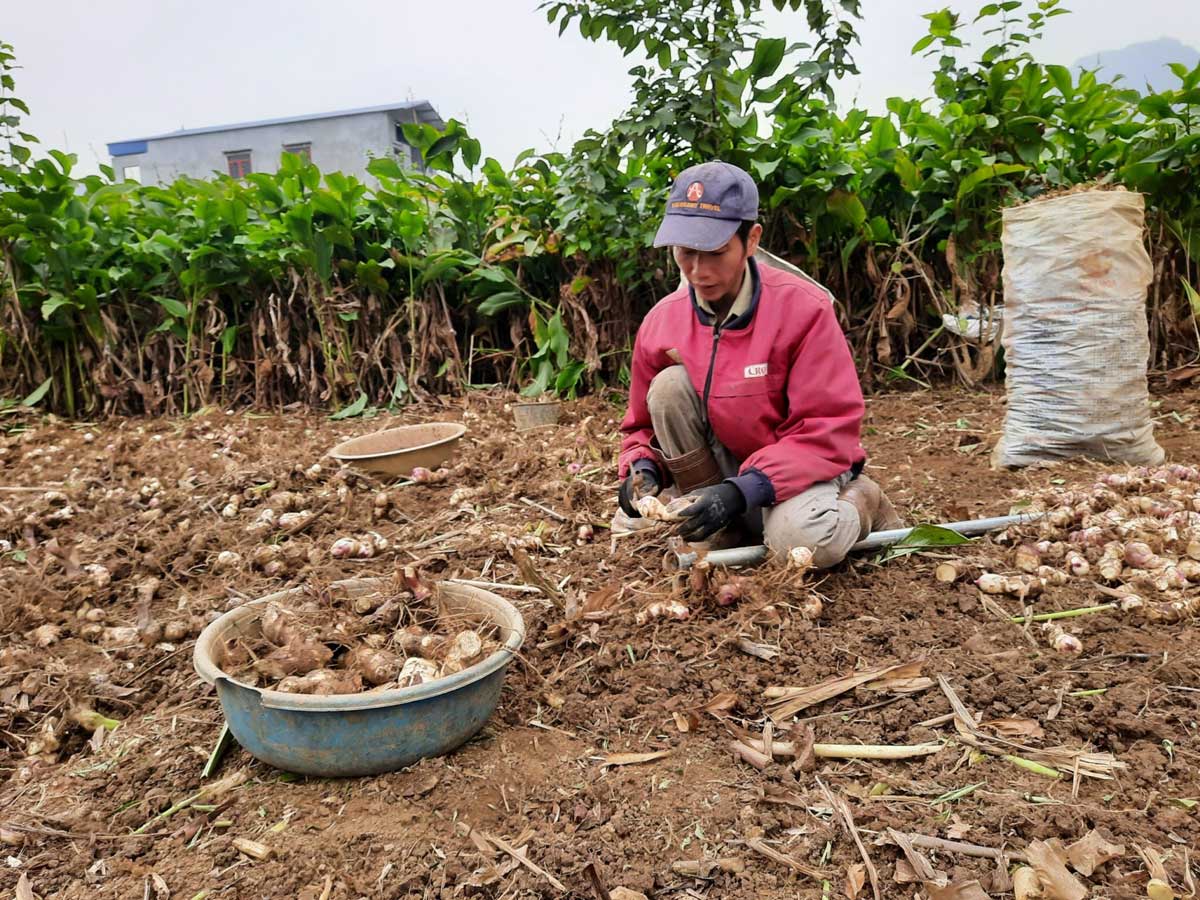


 The farmers in Cao
Son commune (Da Bac) are harvesting Cannaceae to produce vermicelli.
The farmers in Cao
Son commune (Da Bac) are harvesting Cannaceae to produce vermicelli.
In recent years, Cannaceae has been the main and strong crop, providing main source of income, and the people in Cao Son commune have also considered this as the tree for hunger elimination and poverty reduction. The area of cultivating canna in the commune ranges from 250-300 ha every year. Stemming from the abundant raw materials and the guaranteed quality, Yen Ly multi-professional cooperative has invested about 3 billion VND in buying a number of machines, combining the traditional way of vermicelli making methods to produce vermicelli.
Returning to Cao Son in the last days of December, the farmers all over the hamlets are busy harvesting the canna roots so that they can supply raw materials for Yen Ly multi-professional cooperative to produce vermicelli for Lunar Tet. This year, the whole commune has planted 260 ha of canals. Due to the climate and the soil, the canals grown in Cao Son provides good productivity and quality, reaching 65-70 tons/ha. The quality of root is of less fiber with more flour with the average rate of 13.5-16.4%.
Mr. Khuong Xuan Thuong, the Director of Yen Ly multi-professional cooperative, says: Producing vermicelli is seasonal, with production time from solar November to the next January. To ensure the source of raw materials, the cooperative has associated with the local canna growers, and they provide seeds and fertilizers, instruct the techniques and how to take care of them, and they sign the consumption contracts of for the people. To make the canna fiber of high quality, it requires the meticulous and careful production process. All the steps in the vermicelli production process must ensure the food safety and hygiene. They include cleaning the roots, crushing canna powder, filtering the flour, coating vermicelli, drying and slicing vermicelli. Da Bac vermicelli is made entirely from canna roots without any additives and chemicals, so the colour of vermicelli is slightly black like the color of the dried banana leaves.
The quality of vermicelli is guaranteed, án it is delicious and sweet when being eaten. When the vermicelli is cooked for the second time, it is not be crushed, and it is favored by consumers inside and outside the province. In 2020, Yen Ly multi-professional cooperative is expected to produce about 30 tons of vermicelli. Vermicelli is packed in bags of 500 gram with the selling price of 35,000 VND / bag. Vermicelli products are packed with stamps, labels and full information on origin, nutritional ingredients, quality standards ...
Mr. Phung Dinh Cham, the Deputy Head of the Department of Agriculture and Rural Development of Da Bac District, says: In 2020, the product of Da Bac vermicelli of Yen Ly multi-professional cooperative meeting 3-star OCOP standard at provincial level have confirmed the quality and brand of Da Bac vermicelli. The consumption market has been expanding day by day, and it is favored by Hanoi market. O incessantly meet the tastes of customers, as well as to maintain the quality and brand of OCOP products, in the coming time the district will continue to maintain a stable area of raw materials for planting canna. They will strengthen the promotion and introduction of the product at fairs and exhibitions, proceeding to sign the consumption contracts with big supermarkets and clean food stores all over the country and strictly control the production process.